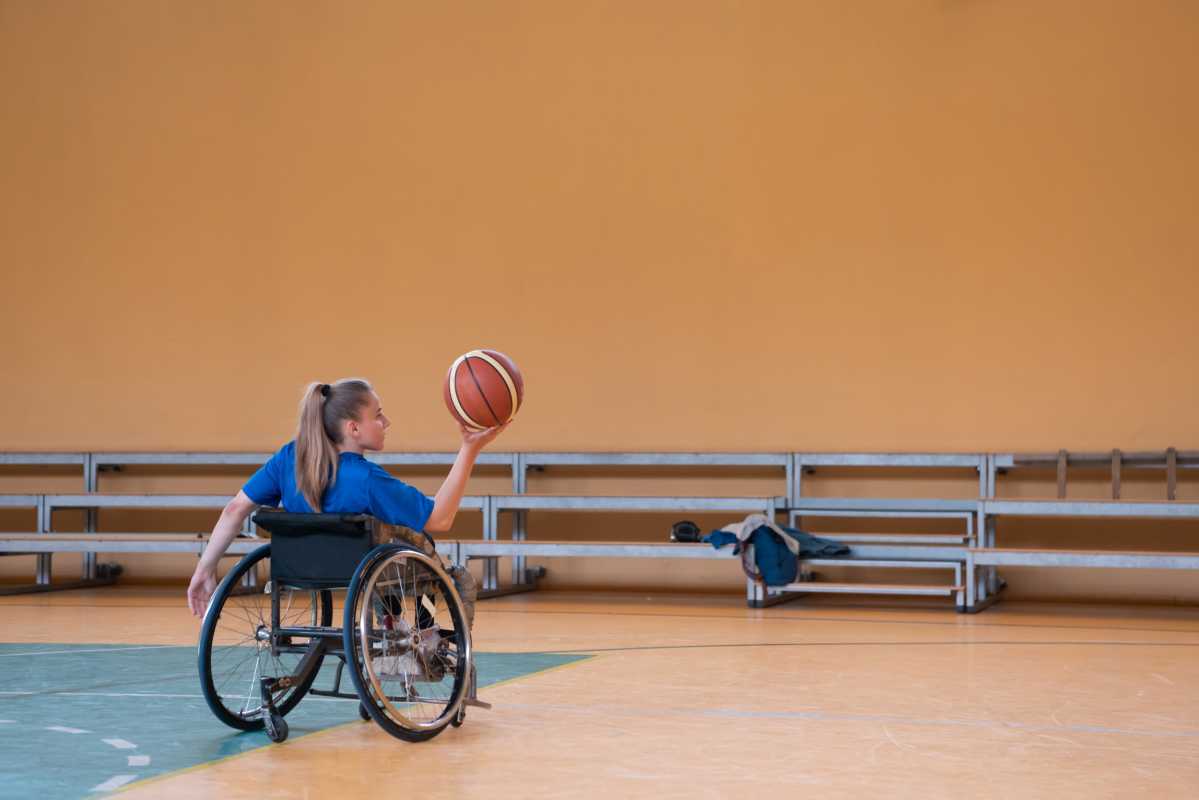Features
The Rise Of Adaptive Sports And Inclusivity In Athletics

Introduction:
Sports have always been a powerful tool for bringing people together, promoting physical fitness, and fostering a sense of community. However, for many years, individuals with disabilities faced significant barriers when it came to participating in traditional sports. Fortunately, in recent times, there has been a remarkable rise in adaptive sports, enabling athletes with various disabilities to actively engage in a wide range of athletic activities. This article explores the significance of adaptive sports, the impact they have on inclusivity in athletics, and the positive changes they bring to the lives of individuals with disabilities.
Understanding Adaptive Sports:
Adaptive sports, often referred to as para sports or disability sports, are specifically designed to accommodate individuals with disabilities. These sports modify the rules, equipment, or playing field to enable individuals with different abilities to compete on equal terms. Some popular examples include wheelchair basketball, sitting volleyball, para-surfing, and blind soccer.
Promoting Inclusivity in Athletics:
One of the greatest benefits of adaptive sports is the emphasis they place on inclusivity. By creating opportunities for athletes with disabilities to participate in sports, these events break down barriers and challenge the perception that sports are only for able-bodied individuals. Through inclusivity in athletics, adaptive sports promote equality and help to change societal attitudes towards disability.
Moreover, inclusive sport environments allow individuals with disabilities to build self-confidence, develop social skills, and experience the thrill of competition. These unique experiences also contribute to personal growth, mental well-being, and overall quality of life.
Improving Physical Fitness and Health:
Participation in adaptive sports offers numerous physical health benefits. These sports help individuals with disabilities strengthen their muscles, improve cardiovascular fitness, and enhance overall coordination and motor skills. Furthermore, physical activity has been shown to contribute to better mental health, reducing stress, anxiety, and depression commonly experienced by individuals with disabilities.
Challenging Stereotypes:
Adaptive sports play a crucial role in challenging stereotypes and misconceptions surrounding disabilities. By showcasing the talent, determination, and skill of disabled athletes, these sports challenge the notion that individuals with disabilities are incapable or limited in their abilities. By breaking down these barriers, adaptive sports help to create a more inclusive and accepting society for people with disabilities.
Promoting Accessibility and Innovation:
Adaptive sports have also spurred significant advancements in equipment and technology. For example, specialized wheelchairs, prosthetic limbs designed for specific sports, and assistive devices have been developed to aid athletes with disabilities. These advancements not only improve performance but also contribute to enhancing accessibility in other aspects of life, such as mobility aids and transportation.
The Future of Adaptive Sports:
The future of adaptive sports looks incredibly promising. With a growing emphasis on inclusivity and increased awareness of the importance of accessibility, the popularity of adaptive sports continues to rise. Major sporting events, like the Paralympic Games, have provided a platform for disabled athletes to showcase their skills at a global level, inspiring countless individuals and showcasing the possibilities of adaptive sports.
As technology continues to advance, we can expect further innovations in equipment, training methods, and inclusive sporting facilities. Additionally, increased funding and support from governments, organizations, and the public will help nurture the growth and development of adaptive sports, ensuring that individuals with disabilities have more opportunities to excel in athletics.
Conclusion:
Adaptive sports have revolutionized the world of athletics by promoting inclusivity, challenging stereotypes, and improving the lives of individuals with disabilities. The rise of para sports has opened new doors and created a more accepting and accessible environment for athletes of all abilities. As we continue to strive for a more inclusive society, fostering the growth of adaptive sports will play a vital role in creating a world where everyone has an equal opportunity to participate and excel in sports.










